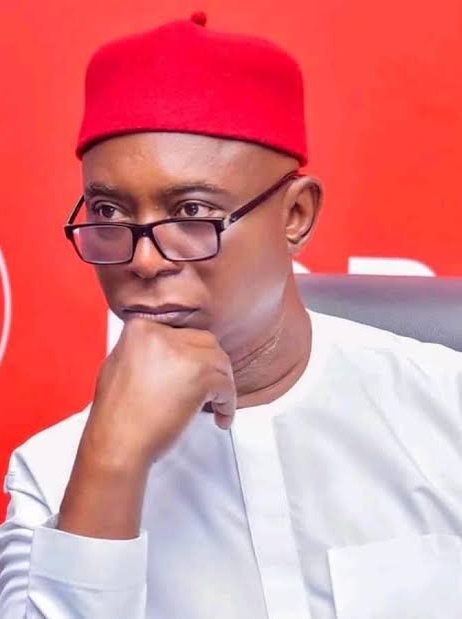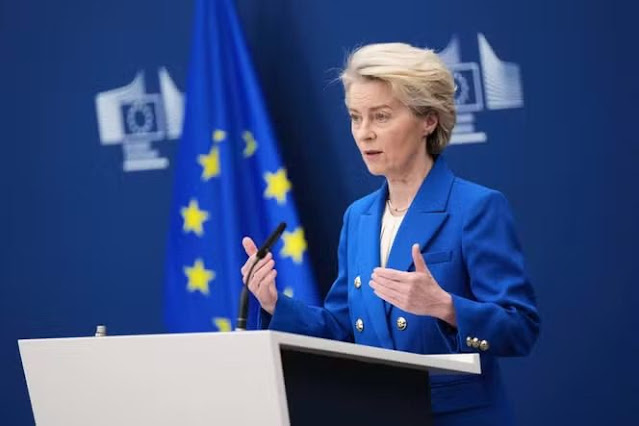On August 27, 2025, Senator Ned Nwoko, representing Delta North under the All Progressives Congress (APC), joined millions of residents in commemorating Delta State’s 34th anniversary, marking the state’s creation on August 27, 1991. In a heartfelt congratulatory message, Nwoko described the milestone as a moment of both joy and sober reflection, celebrating the collective struggles, triumphs, and aspirations that have defined Delta’s journey within Nigeria’s federation. As the chairman of the Senate Committee on Reparations and Repatriation, Nwoko highlighted the state’s resilience, diversity, and progress while urging stronger collaboration to address ongoing challenges in infrastructure, security, education, and social welfare. Emphasizing the importance of grassroots communities and youth empowerment, he called for unity behind Governor Sheriff Oborevwori’s administration to ensure sustainable development. This article provides a comprehensive analysis of Nwoko’s message, the historical context of Delta State’s evolution, the challenges and opportunities ahead, and the broader implications for Nigeria’s federal system.
The Anniversary: A Moment of Reflection and Celebration
Delta State’s 34th anniversary marks the creation of the state by the military administration of General Ibrahim Babangida on August 27, 1991, when it was carved out of the former Bendel State. Home to over 5.6 million people, according to 2023 estimates, Delta is a vibrant and diverse state known for its rich cultural heritage, economic contributions through oil and gas, and a dynamic population spanning ethnic groups such as the Urhobo, Itsekiri, Ijaw, Isoko, and Anioma. The anniversary, celebrated with events across the state, including cultural displays, community gatherings, and government-led programs, provided an opportunity to reflect on Delta’s journey and chart a path forward.
Senator Ned Nwoko’s message captured the dual nature of the milestone, describing it as “both a moment of joy and sober reflection.” He highlighted the state’s evolution through various phases, from its early struggles to establish a distinct identity to its emergence as a key player in Nigeria’s socio-economic landscape. “We have seen the state evolve through different phases, and today we celebrate not only our history but also the promise of our future,” Nwoko said, emphasizing Delta’s resilience in overcoming challenges and its potential for further growth.
The senator’s remarks resonated with many Deltans, who view the anniversary as a testament to the state’s ability to navigate complex socio-political dynamics while contributing significantly to Nigeria’s economy, particularly through its oil-producing status. However, Nwoko’s call for reflection also acknowledged the work that remains, particularly in addressing disparities between urban and rural areas and ensuring that all citizens benefit from the state’s progress.
Historical Context: Delta’s Journey Since 1991
Delta State’s creation in 1991 was part of a broader effort to reorganize Nigeria’s federal structure, addressing demands for greater regional autonomy and representation. The state inherited a mix of urban centers like Warri and Asaba, rural communities, and riverine areas, each with unique challenges and opportunities. Over the past 34 years, Delta has made significant strides in various sectors, but it has also faced persistent hurdles:
Early Challenges:
In its formative years, Delta struggled with inadequate infrastructure, including poor roads, limited electricity, and underdeveloped healthcare and education systems. These challenges were compounded by the complexities of integrating diverse ethnic groups and managing resource allocation in a state with significant oil wealth.
Senator Nwoko recalled these early struggles, noting that the determination of Deltans—through community efforts, leadership, and resilience—kept the state moving forward. Investments in infrastructure, such as the Asaba-Onitsha Expressway and the Warri Refinery, began to lay the foundation for progress.
Economic Contributions:
Delta’s status as a major oil-producing state has made it a cornerstone of Nigeria’s economy, contributing a significant portion of the country’s crude oil and natural gas output. Cities like Warri and Sapele have become hubs for the oil and gas industry, attracting investment and creating jobs.
However, the reliance on oil has also exposed Delta to economic volatility, environmental degradation, and social unrest, particularly in the Niger Delta region, where militancy and protests over resource control have been recurrent.
Social and Cultural Diversity:
Delta’s ethnic diversity, while a source of strength, has also posed challenges in fostering unity and equitable development. The Anioma people of Delta North, represented by Nwoko, have often advocated for greater inclusion in state and federal politics, while the Urhobo, Itsekiri, and Ijaw communities have their own distinct aspirations.
Cultural festivals, such as the Anioma Cultural Festival and the Okere Juju Festival, have played a role in celebrating this diversity, but Nwoko’s message emphasized the need for policies that bridge ethnic divides and promote inclusive growth.
Progress in Key Sectors:
Delta has made notable progress in education, with institutions like Delta State University and technical colleges producing skilled graduates. Healthcare improvements, such as the upgrading of facilities in Asaba and Warri, have enhanced access to medical services. Human capital development, particularly in the creative and tech sectors, has also positioned Delta as a hub for innovation.
Despite these achievements, disparities remain, particularly in rural and riverine areas, where access to basic services like clean water, electricity, and schools is limited.
Nwoko’s Message: A Call for Grassroots Focus and Collaboration
Senator Ned Nwoko’s congratulatory message was both a celebration of Delta’s achievements and a call to action for addressing its challenges. As the chairman of the Senate Committee on Reparations and Repatriation, Nwoko brought a national perspective to his remarks, emphasizing the need for Delta to leverage its position within Nigeria’s federation to secure resources and influence.
Grassroots Development:
Nwoko stressed that the “soul of Delta” lies in its rural communities, including villages and riverine areas, where the impact of governance is often least felt. “The soul of Delta lies not only in Asaba or Warri, but also in our rural communities, where people most eagerly await the dividends of democracy,” he said. This focus on grassroots development reflects the reality that many Deltans live in agrarian or fishing communities, which have been underserved despite the state’s oil wealth.
He urged the state government to prioritize investments in rural infrastructure, such as roads, schools, and health centers, to ensure equitable development. This call aligns with broader national debates about decentralization and the need to empower local communities.
Youth and Women Empowerment:
Recognizing that over 60% of Delta’s population is under 30, Nwoko emphasized the importance of youth empowerment through education, skills training, and job creation. He also highlighted the role of women, who make up a significant portion of the state’s workforce and community leaders, in driving progress.
Programs like the Delta State Entrepreneurship Programme (DSEP) and initiatives to support women-owned businesses were cited as models to expand, ensuring that young people and women have opportunities to contribute to the state’s future.
Collaboration and Unity:
Nwoko called for stronger collaboration between the state government, federal legislators, and stakeholders, including traditional leaders, civil society, and the private sector. He urged Deltans to rally behind Governor Sheriff Oborevwori’s administration, emphasizing that governance is a collective responsibility. “We must work together to tackle infrastructure, security, education, and social welfare,” he said, highlighting the need for a unified approach to development.
His message also underscored the importance of Delta’s voice in national politics, with Nwoko pledging to advocate for the state’s interests in the Senate. This includes securing federal funding for projects and addressing issues like repatriation, which could bring cultural and economic benefits to Delta.
Sober Reflection:
While celebrating Delta’s progress, Nwoko’s call for “sober reflection” acknowledged the state’s challenges, including insecurity in the Niger Delta, environmental degradation from oil exploration, and disparities in development. He urged leaders to confront these issues head-on, ensuring that the anniversary serves as a catalyst for renewed commitment.
Governor Sheriff Oborevwori’s Role
Governor Sheriff Oborevwori, who assumed office in May 2023, has prioritized infrastructure and human capital development under his MORE (Meaningful Development, Opportunities for All, Realistic Reforms, and Enhanced Peace) agenda. His administration has initiated projects such as the Emevor-Orogun Road, the Okpanam-Ibusa Bypass, and upgrades to primary healthcare centers, which align with Nwoko’s call for grassroots focus. The anniversary celebrations, which included community outreach and cultural events, provided a platform for Oborevwori to highlight these achievements.
Nwoko’s endorsement of Oborevwori’s leadership reflects a strategic alignment between state and federal actors, particularly within the context of Nigeria’s complex political landscape. As a member of the APC, Nwoko’s support for Oborevwori, a Peoples Democratic Party (PDP) governor, demonstrates a commitment to bipartisan collaboration for Delta’s benefit. This unity is critical in a state with diverse ethnic and political interests, where cooperation can bridge divides and drive progress.
Challenges Facing Delta State
Despite its achievements, Delta State faces significant challenges that must be addressed to realize its full potential:
Infrastructure Deficits:
Rural and riverine areas, particularly in the Niger Delta, suffer from poor roads, unreliable electricity, and limited access to clean water. Projects like the dualisation of the Ughelli-Asaba Road, while promising, must be expedited to connect underserved communities.
Insecurity:
The Niger Delta region, including Delta State, has faced recurrent violence, including militancy, kidnapping, and communal clashes. Addressing these issues requires collaboration between state, federal, and community stakeholders to enhance security and promote peace.
Environmental Degradation:
Oil exploration has caused significant environmental damage, including oil spills and gas flaring, affecting livelihoods in fishing and farming communities. Nwoko’s role in the Senate could be pivotal in advocating for environmental remediation and compensation for affected communities.
Economic Diversification:
Delta’s reliance on oil revenue makes it vulnerable to global price fluctuations. Investments in agriculture, tourism, and technology could diversify the economy, creating jobs and reducing poverty.
Youth Unemployment:
With a large youth population, Delta faces high unemployment rates, estimated at over 30%. Expanding vocational training, entrepreneurship programs, and tech hubs could harness this demographic dividend.
Opportunities for Delta’s Future
The 34th anniversary provides an opportunity to chart a path forward for Delta State:
Grassroots Development:
Prioritizing rural infrastructure, such as roads, schools, and health centers, can improve living standards and reduce urban-rural disparities. Initiatives like the Delta State Rural Development Agency could be expanded to drive these efforts.
Youth and Women Empowerment:
Scaling up programs like DSEP and creating tech innovation hubs can empower young people and women, fostering economic growth and social inclusion. Partnerships with private sector players, such as tech firms, could enhance these efforts.
Cultural and Tourism Potential:
Delta’s rich cultural heritage, including festivals and historical sites, offers untapped potential for tourism. Promoting destinations like the Nana of Koko Palace and the Olu of Warri’s Palace could boost the economy.
Federal Advocacy:
Nwoko’s position in the Senate provides a platform to secure federal support for Delta’s development, including funding for infrastructure and policies to address environmental issues. His focus on repatriation could also bring cultural artifacts back to Delta, enhancing its global profile.
Public and Political Reactions
The anniversary and Nwoko’s message have generated varied responses:
Public Support:
Many Deltans, particularly in Delta North, have praised Nwoko for his advocacy and focus on grassroots development. Community leaders in rural areas have echoed his call for equitable governance, urging the state to prioritize underserved regions.
Skepticism:
Some residents remain skeptical, citing the slow pace of infrastructure projects and persistent insecurity. On X, users have called for accountability, urging leaders to translate anniversary rhetoric into tangible results.
Political Dynamics:
Nwoko’s bipartisan support for Oborevwori has been noted positively, signaling a potential for collaboration across party lines. However, political rivals may use the anniversary to highlight gaps in the state’s progress, particularly as the 2027 elections approach.
Conclusion
Senator Ned Nwoko’s message on Delta State’s 34th anniversary encapsulates the pride, challenges, and aspirations of a state at a crossroads. By celebrating Delta’s resilience and diversity while calling for grassroots development and collaboration, Nwoko has set a tone of unity and purpose. The anniversary serves as a reminder of Delta’s contributions to Nigeria’s federation and the work needed to ensure inclusive progress.
As Delta navigates infrastructure deficits, insecurity, and economic challenges, the leadership of figures like Nwoko and Oborevwori will be critical. By prioritizing rural communities, empowering youth and women, and leveraging federal advocacy, Delta can build on its 34-year legacy to create a brighter future. The anniversary is not just a celebration of the past but a call to action for a state—and a people—determined to shape a prosperous and equitable tomorrow.







